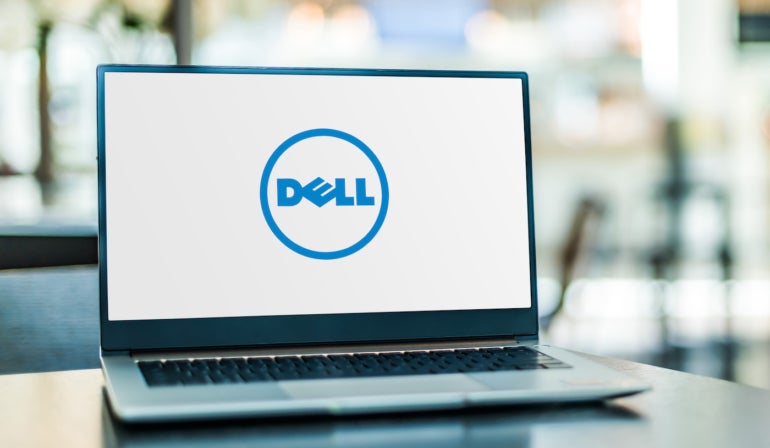[ad_1]
The new servers are powered by 4th-generation Intel Xeon Scalable processors and developed for cloud providers for efficient AI delivery.

As the demand for artificial intelligence, data analytics, cloud and edge computing technologies continues to surge, there is a corresponding demand for powerful servers to run them at optimal scale.
Seeking to capitalize on this opportunity, Dell has announced the expansion of its PowerEdge Servers. The company has added 13 next-generation PowerEdge servers to its product stack to advance performance and energy-efficient design for data centers, public clouds and use in edge locations. This expansion comes via racks, multi-node formats and towers, and it includes the fourth-generation Intel Xeon Scalable processors.
According to Jeff Boudreau, president and general manager of the infrastructure solutions group at Dell, expanding the PowerEdge servers will aid businesses in adopting an as-a-service strategy.
“Our next-generation Dell PowerEdge servers offer relevant innovation that raises the bar in power efficiency, performance and reliability while simplifying how customers can implement a Zero Trust approach for greater security throughout their IT environments,” Boudreau said.
SEE: Don’t curb your enthusiasm: Trends and challenges in edge computing (TechRepublic)
Main highlights of the new Dell PowerEdge Servers
Dell listed various solutions it seeks to bring to its consumers with the expanded PowerEdge server.
New servers for cloud service providers
With the release of the Dell PowerEdge HS5610 and HS5620 servers, cloud service providers can now manage massive, multi-vendor data centers. These new, two-socket servers come in 1U and 2U form factors, including cold aisle serviceable configurations, and can be purchased with Dell Open Server Manager, an OpenBMC-based systems management solution to make multi-vendor fleet management more accessible.
Greater performance and simpler management
Dell claims its latest PowerEdge server offers up to 2.9x higher AI inferencing on 4th Gen Intel Xeon Scalable processors, delivering improved performance.
This comes after the company revealed that it extended its partnership with NVIDIA, a global leader in artificial intelligence, to boost its AI portfolio. This AI stack is now available on 15 new Dell PowerEdge servers.
To further enhance server management, Dell will deploy three key sub-services: Dell CloudIQ, which handles machine learning, server monitoring and predictive analytics, Dell ProDeploy services for expansion of data centers, and Dell iDRAC9 for server automation and intelligence.
Designed for sustainability
The 15th Dell PowerEdge servers are designed to beat the 14th Generation PowerEdge servers in terms of sustainability. The latest generation of PowerEdge servers will take less physical space due to the presence of Intel Xeon Scalable processors. Dell says this upgraded processor from Intel will bring efficient technology across next-generation systems.
This sustainability feature comes with Dell Smart Flow design, which was developed to improve cooling power, increase airflow and reduce fan power by up to 52% compared to previous generation servers.
Another key mention in the sustainability feature of the enhanced Dell PowerEdge servers is Dell OpenManage Enterprise Power Manager 3.0. According to Dell, this feature helps customers to manage efficiency and cooling goals better, monitor carbon emissions and set power caps up to 82% faster to limit overall energy usage. With this improvement, it becomes possible for customers to determine overall server consumption, virtual machine and facility energy use, leak detection for liquid cooling systems and more.
Reliability and security at the core
Dell did not leave out server security in the latest iteration of its PowerEdge servers. The next-generation PowerEdge servers will help accelerate zero trust adoption within organizations’ IT environments. With this development, devices will constantly verify access, as it sees every user and device as a potential threat.
At the hardware level, Dell will rely on its Dell Secured Component Verification, which helps verify supply chain security from design to delivery. There is also an additional layer of security in multifactor authentication and integrated iDRAC, which will verify users before granting access.
Delivering a scalable, modern compute experience
Dell will adopt a subscription model through Dell APEX to provide this service for their customers looking for OPEX flexibility. The company will implement this flexibility using advanced data collection and processor-based measurement by the hour. With these measures in place, Dell customers can determine how flexible they want to be and avoid the costs associated with over-provisioning their compute needs.
Dell’s momentum on server development
This is not the first time Dell has made news with improvements to its PowerEdge servers. In August 2022, the company announced a partnership with NVIDIA to deliver Dell PowerEdge servers built with NVIDIA DPUs, NVIDIA GPUs and VMware vSphere 8.
With this latest evolution in its server technology, Dell shows that it’s ready to sustain the momentum toward being a key player in sophisticated server provisioning. Besides server development, the PC manufacturer has committed to diversifying into other tech stacks like software, AI, servers, cloud and edge computing.
If you find it swell to read about Dell, well — we have more articles here: Dell announces new capabilities to VxRail, APEX and Validated Design for AI, and HPE GreenLake vs Dell APEX, a comparison of edge computing platforms.
[ad_2]
Source link